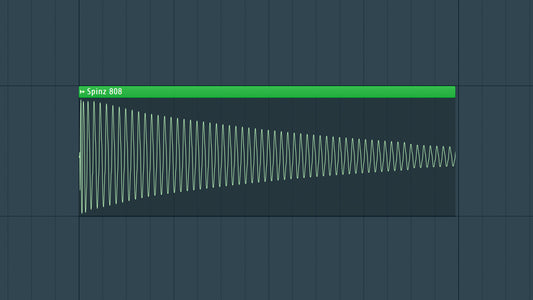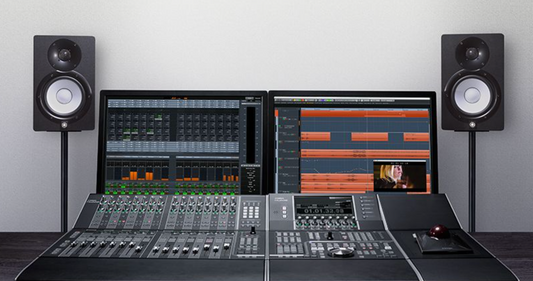Introduction
In the vast landscape of music production, understanding the intricacies of copyright and royalties is essential for both protecting your creative work and ensuring you receive fair compensation. In this blog, we'll embark on a journey through the complex world of music copyrights and royalties, shedding light on key concepts that every producer should grasp.
CLICK HERE TO DOWNLOAD 20+ FREE SAMPLE PACKS

1. Copyright Basics:
- Protecting Your Creations: Copyright is the legal right that grants the creator of an original work exclusive rights to its use and distribution. As a music producer, your beats, melodies, and arrangements are your intellectual property, and copyright protection is crucial. In many countries, copyright is automatically granted upon the creation of the work, but registering your music with a copyright office can provide additional legal benefits.
2. Types of Rights:
- Understanding Exclusive and Non-Exclusive Rights: As a producer, you hold exclusive rights to your music, which include the right to reproduce, distribute, and perform your work. When you collaborate with artists or sell beats, you may grant non-exclusive rights, allowing others to use the music for specific purposes without giving up your exclusive rights.
3. Sampling and Clearance:
- Navigating the Sample Seas: If you incorporate samples from existing recordings into your music, be aware of clearance requirements. Sampling without permission can lead to legal issues. Clearance involves obtaining permission from the copyright owner of the original recording, and sometimes paying a fee, to use the sampled material legally.
4. Performance Rights Organizations (PROs):
- Getting Paid for Performances: PROs such as ASCAP, BMI, and SESAC collect performance royalties on behalf of songwriters, composers, and publishers. When your music is performed in public – on radio, TV, in clubs, or online – PROs ensure you receive compensation for these public performances.
5. Mechanical Royalties:
- Earning from Reproduction: Mechanical royalties are earned when your music is reproduced or distributed. This includes sales of physical copies like CDs and vinyl, as well as digital downloads and streams. Mechanical royalties are typically collected and distributed by organizations such as the Harry Fox Agency (HFA).
6. Sync Licensing:
- Music in Media: Sync licensing involves placing your music in films, TV shows, commercials, and video games. This can be a lucrative revenue stream for producers. When your music is synced with visual media, you receive sync licensing fees, and your PRO may collect additional performance royalties.
7. Work-for-Hire Agreements:
- Understanding Ownership Terms: When producing music for others, clarify ownership terms in work-for-hire agreements. If you're hired to create a beat, establish whether you retain any rights or if the client owns the exclusive rights to the work. Clearly outlining ownership prevents disputes in the future.
8. Digital Platforms and Streaming Royalties:
- Diving into the Streaming Ocean: Digital platforms and streaming services like Spotify, Apple Music, and YouTube generate royalties for music creators. The revenue from streaming is based on the number of plays, and organizations like SoundExchange help collect and distribute digital performance royalties.
9. Collaboration Agreements:
- Communicating with Collaborators: When collaborating with other musicians or producers, establish clear agreements on how royalties will be divided. Define the percentage each collaborator is entitled to, considering contributions to composition, production, and other creative aspects.
10. Educate Yourself and Seek Legal Advice:
- Knowledge is Key: Stay informed about copyright laws, royalty structures, and industry practices. Consider seeking legal advice to navigate complex issues and ensure your rights are protected. Understanding the legal landscape empowers you as a producer.
CLICK HERE TO DOWNLOAD 20+ FREE SAMPLE PACKS
Conclusion
In the intricate realm of music production, understanding copyright and royalties is paramount. By safeguarding your intellectual property, navigating licensing and royalty agreements, and staying informed about industry practices, you position yourself to thrive in the dynamic world of music creation. Arm yourself with knowledge, protect your craft, and let the melodies flow freely – all while securing the recognition and compensation you deserve as a talented music producer. Happy producing!




